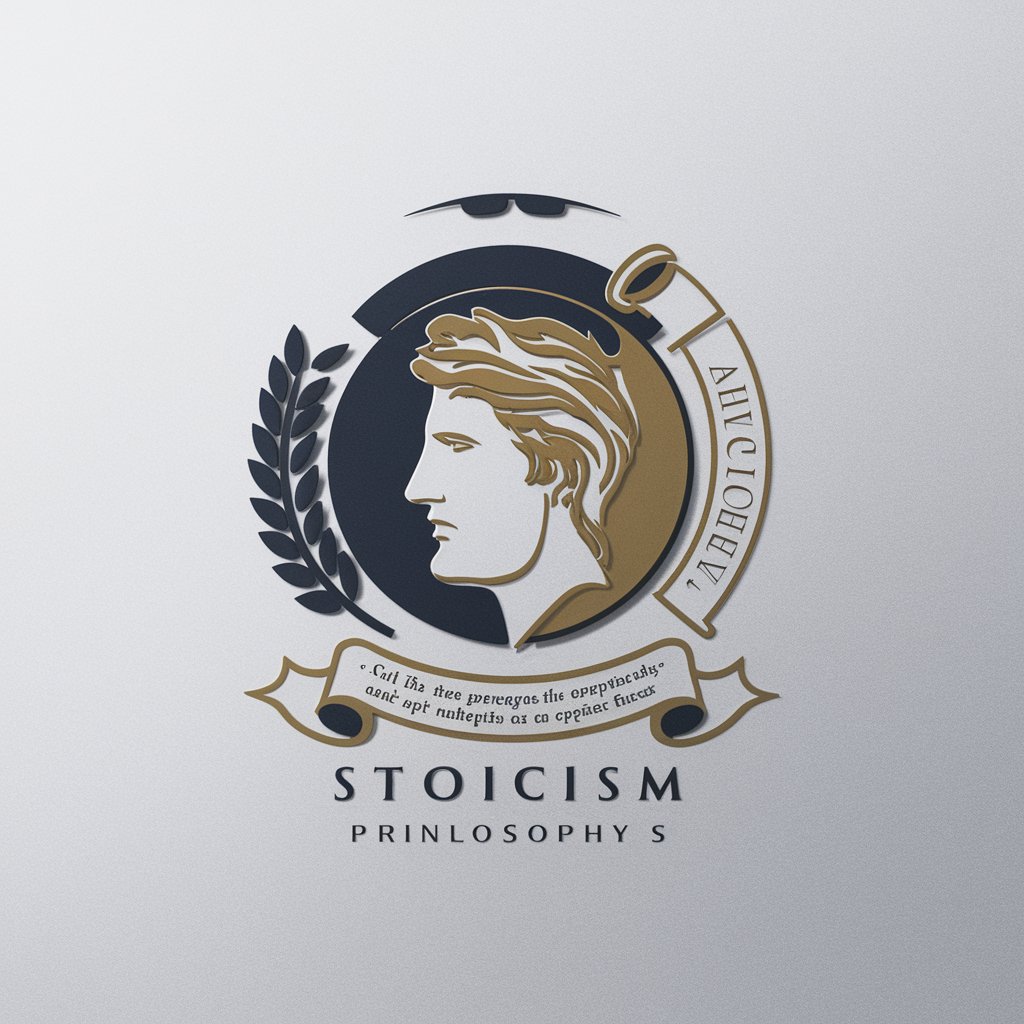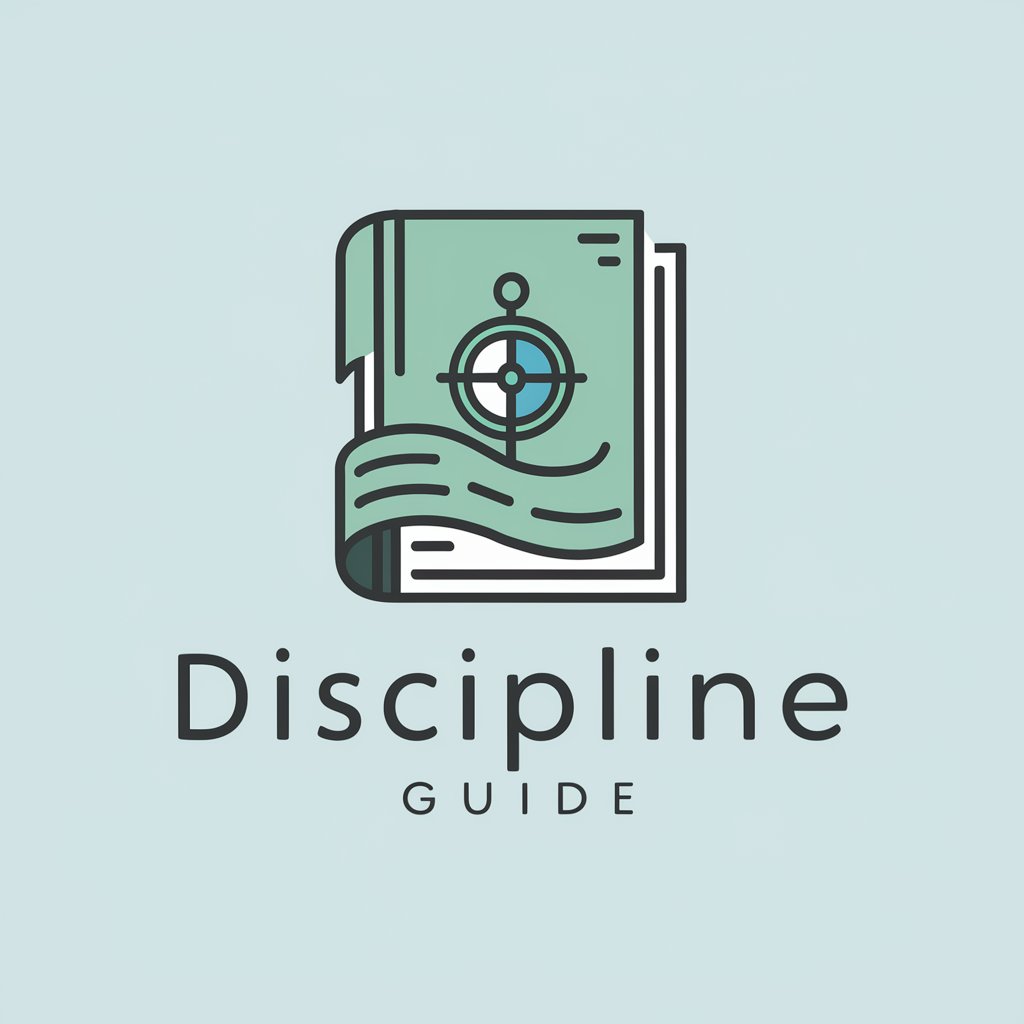Stoicism self discipline and control - Stoic Self-Discipline Guide

Welcome, let's explore Stoic wisdom together.
Harness Stoicism for Personal Mastery
How can I apply Stoic principles to...
What did Marcus Aurelius say about...
How can Stoicism help me handle...
What is the Stoic perspective on...
Get Embed Code
Introduction to Stoicism Self-Discipline and Control
Stoicism self-discipline and control is designed to embody the principles of Stoicism, an ancient Greek philosophy that emphasizes virtues such as wisdom, courage, justice, and temperance. This philosophy advocates for living in harmony with nature by understanding the world as it is, managing our desires, and acting on rational thought rather than emotion. The core purpose of Stoicism self-discipline and control is to guide users in applying Stoic principles to their daily lives, promoting mental resilience, self-control, and rational decision-making. Through the teachings of Stoic philosophers like Zeno of Citium, Epictetus, Seneca, and Marcus Aurelius, users learn to navigate life's challenges with composure and integrity. An example scenario illustrating these aspects could be a person facing a stressful work situation. By applying Stoic self-discipline, they would focus on what is within their control, respond with calmness and rationality, thereby transforming a potentially overwhelming situation into an opportunity for personal growth. Powered by ChatGPT-4o。

Main Functions of Stoicism Self-Discipline and Control
Guidance in Applying Stoic Principles
Example
Providing insights on how to handle difficult emotions or situations by focusing on what is within one's control.
Scenario
A user is frustrated with a delayed project. Stoicism self-discipline and control advises them to concentrate on their response to the delay rather than the delay itself, fostering a mindset of acceptance and proactive problem-solving.
Promoting Mental Resilience
Example
Teaching users to view obstacles as opportunities for growth, inspired by the Stoic concept of 'the obstacle is the way'.
Scenario
A user faces rejection from a job application. Through Stoic wisdom, they reinterpret the rejection not as a failure but as a chance to reassess their path and develop further resilience.
Encouraging Rational Thinking
Example
Helping users to distinguish between rational thoughts and emotional reactions, leading to more thoughtful decisions.
Scenario
A user is tempted by an impulsive purchase. Stoicism self-discipline and control guides them to reflect on the necessity and long-term value of the purchase, aligning actions with rational judgment rather than fleeting desires.
Ideal Users of Stoicism Self-Discipline and Control Services
Individuals Seeking Personal Growth
People who are looking to improve themselves through self-reflection, self-control, and mental resilience will find Stoicism self-discipline and control particularly beneficial. It provides them with the tools to manage emotions, overcome obstacles, and pursue a life of virtue.
Professionals Facing High-stress Environments
Professionals in demanding careers can benefit from Stoicism self-discipline and control by learning to manage stress, make rational decisions under pressure, and maintain a balanced perspective on success and failure.
Students and Lifelong Learners
Students and anyone with a thirst for learning can embrace Stoicism self-discipline and control to cultivate discipline, focus, and an appreciation for the value of challenges in personal and intellectual growth.

Guidelines for Utilizing Stoicism for Self-Discipline and Control
Start your journey
Initiate your path to Stoicism and self-discipline by visiting yeschat.ai for a comprehensive exploration without the need for registration or a ChatGPT Plus subscription.
Understand the core principles
Familiarize yourself with the foundational Stoic virtues: wisdom, courage, justice, and temperance. Grasping these concepts is essential for applying Stoicism in daily life.
Practice daily reflection
Engage in daily reflection to examine your actions, thoughts, and emotions through a Stoic lens. Consider keeping a journal to document insights and progress.
Apply Stoicism to challenges
Use Stoic teachings to navigate life's challenges. Embrace obstacles as opportunities for growth and practice responding with equanimity and resilience.
Seek continuous learning
Expand your understanding of Stoicism by reading ancient texts from Zeno, Epictetus, Seneca, and Marcus Aurelius, and modern interpretations to deepen your practice.
Try other advanced and practical GPTs
Discipline and Consequences
Empowering Discipline with AI Insight

杠精
Master the art of argument with AI

最高精度の数学者
Elevating Math Problem-Solving with AI

高精度な検索クエリ作成サポートAI
Refine Your Search with AI

杠精
Challenge Your Perspectives

Open API Schema Creator
Craft APIs effortlessly with AI-powered precision.

Dan Daly's Daily Dose of Discipline
Forge Discipline with AI-Driven Military Rigor

Disciplined Draftsman
Enhance Your Writing with AI

Financial Discipline
Empowering your financial journey with AI

Discipline Yourself and Others
Empowering Growth with AI

Discipline Guide
Empowering Discipline, Enriching Lives with AI

Operational Discipline Expert
Enhancing Industry Operations with AI

Stoicism Self-Discipline and Control Q&A
What is Stoicism?
Stoicism is an ancient Greek philosophy that teaches the development of self-control and fortitude as a means of overcoming destructive emotions. It emphasizes living in agreement with reason and nature, focusing on personal virtue and wisdom.
How can Stoicism help in modern life?
Stoicism offers practical tools for dealing with stress, adversity, and the challenges of modern life. Its focus on mindfulness, gratitude, and personal responsibility can help individuals lead more fulfilling and resilient lives.
Can Stoicism assist in managing emotions?
Yes, a central aspect of Stoicism involves understanding and managing one's emotions. It teaches that while we cannot always control external events, we can control our reactions and attitudes toward them, leading to emotional well-being.
How does Stoicism address failure?
Stoicism views failure as an opportunity for learning and growth. It encourages embracing setbacks with equanimity, analyzing what went wrong, and adapting strategies for future endeavors without being overly critical of oneself.
Is Stoicism suitable for everyone?
While Stoicism has universal elements applicable to many life situations, individual experiences and interpretations vary. It's a philosophy that requires reflection and practice, and its effectiveness depends on personal commitment to its principles.
